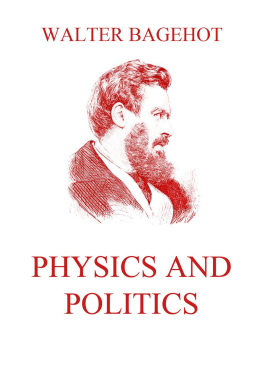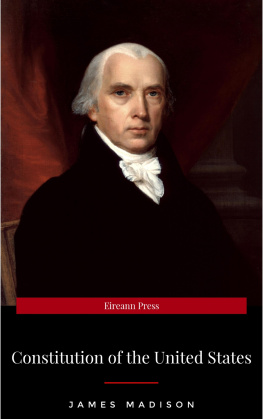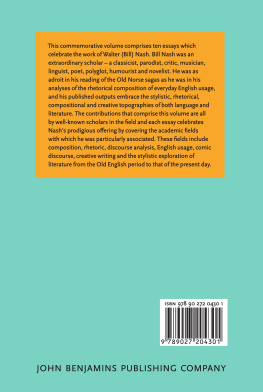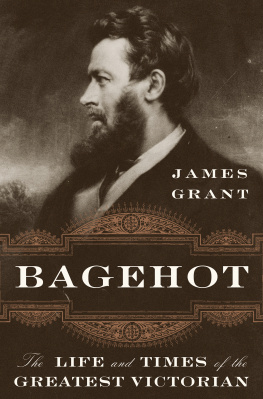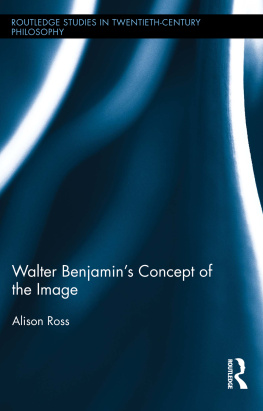Walter Bagehot - The English Constitution
Here you can read online Walter Bagehot - The English Constitution full text of the book (entire story) in english for free. Download pdf and epub, get meaning, cover and reviews about this ebook. year: 2001, publisher: Oxford University Press, genre: Politics. Description of the work, (preface) as well as reviews are available. Best literature library LitArk.com created for fans of good reading and offers a wide selection of genres:
Romance novel
Science fiction
Adventure
Detective
Science
History
Home and family
Prose
Art
Politics
Computer
Non-fiction
Religion
Business
Children
Humor
Choose a favorite category and find really read worthwhile books. Enjoy immersion in the world of imagination, feel the emotions of the characters or learn something new for yourself, make an fascinating discovery.

- Book:The English Constitution
- Author:
- Publisher:Oxford University Press
- Genre:
- Year:2001
- Rating:5 / 5
- Favourites:Add to favourites
- Your mark:
- 100
- 1
- 2
- 3
- 4
- 5
The English Constitution: summary, description and annotation
We offer to read an annotation, description, summary or preface (depends on what the author of the book "The English Constitution" wrote himself). If you haven't found the necessary information about the book — write in the comments, we will try to find it.
The English Constitution — read online for free the complete book (whole text) full work
Below is the text of the book, divided by pages. System saving the place of the last page read, allows you to conveniently read the book "The English Constitution" online for free, without having to search again every time where you left off. Put a bookmark, and you can go to the page where you finished reading at any time.
Font size:
Interval:
Bookmark:

Great Clarendon Street, Oxford OX2 6DP
Oxford University Press is a department of the University of Oxford.
It furthers the Universitys objective of excellence in research, scholarship,
and education by publishing worldwide in
Oxford New York
Athens Auckland Bangkok Bogot Buenos Aires Calcutta
Cape Town Chennai Dar es Salaam Delhi Florence Hong Kong Istanbul
Karachi Kuala Lumpur Madrid Melbourne Mexico City Mumbai
Nairobi Paris So Paulo Shanghai Singapore Taipei Tokyo Toronto Warsaw
with associated companies in Berlin Ibadan
Oxford is a registered trade mark of Oxford University Press
in the UK and in certain other countries
Published in the United States
by Oxford University Press Inc., New York
Editorial matter Miles Taylor 2001
The moral rights of the author have been asserted
Database right Oxford University Press (maker)
First published as an Oxford Worlds Classics paperback 2001
All rights reserved. No part of this publication may be reproduced, stored in a retrieval system, or transmitted, in any form or by any means, without the prior permission in writing of Oxford University Press, or as expressly permitted by law, or under terms agreed with the appropriate reprographics rights organization. Enquiries concerning reproduction outside the scope of the above should be sent to the Rights Department, Oxford University Press, at the address above
You must not circulate this book in any other binding or cover
and you must impose this same condition on any acquiror
British Library Cataloguing in Publication Data
Data available
Library of Congress Cataloging in Publication Data
Data available
ISBN 0192839756
1 3 5 7 9 10 8 6 4 2
Typeset in Ehrhardt
by RefineCatch Limited, Bungay, Suffolk
Printed in Great Britain by
Cox & Wyman Ltd.
Reading, Berkshire
OXFORD WORLDS CLASSICS
For over 100 years Oxford Worlds Classics have brought readers closer to the worlds great literature. Now with over 700 titlesfrom the 4,000-year-old myths of Mesopotamia to the twentieth centurys greatest novelsthe series makes available lesser-known as well as celebrated writing.
The pocket-sized hardbacks of the early years contained introductions by Virginia Woolf, T. S. Eliot, Graham Greene, and other literary figures which enriched the experience of reading. Today the series is recognized for its fine scholarship and reliability in texts that span world literature, drama and poetry, religion, philosophy and politics. Each edition includes perceptive commentary and essential background information to meet the changing needs of readers.
Refer to to navigate through the material in this Oxford Worlds Classics ebook. Use the asterisks (*) throughout the text to access the hyperlinked Explanatory Notes.
OXFORD WORLDS CLASSICS

WALTER BAGEHOT

Edited with an Introduction and Notes by
MILES TAYLOR

OXFORD WORLDS CLASSICS
THE ENGLISH CONSTITUTION
WALTER BAGEHOT was born in Langport, Somerset, in 1826, the son of a banker. After taking BA and MA degrees from University College London he studied for the bar, and was called in 1852. However, he decided to return home and join his fathers bank, devoting his leisure to contributing literary, historical and political reviews to the leading periodicals of the 1850s. In 1861 he returned to London, succeeding his father-in-law as editor and director of the Economist. Three books ensured Bagehots reputation as one of the most distinguished and influential Victorian men-of-letters: The English Constitution (1867), published at the height of the debate over parliamentary reform; Physics and Politics (1872), his application of Darwinian ideas to political science; and Lombard Street (1873), a study of the City of London. Walter Bagehot died in 1877.
MILES TAYLOR is a Lecturer in Modern History at Kings College, London. He is the author of The Decline of British Radicalism, 184760 (Clarendon Press, 1995) and is currently completing a biography of the last Chartist leader, Ernest Jones.
WALTER BAGEHOTS The English Constitution (1867) was not the first word on the subject written in the 1860s. Nor has it proved the last, or even the most enduring. But it remains the best. First published as a series of articles in the Fortnightly Review between May 1865 and January 1867, The English Constitution is a stylish analysis of the workings of the cabinet system, the monarchy,
Wise chat sums up the achievement but also the problem
Bagehot, who often seemed not to be treating his own subject very seriously, has thus not been taken seriouslyeither by modern historians who have aspired to be politicians, or by politicians who think of themselves as historians. This is partly a matter of tone. Wise chat endears but does not endure. But it is also the result of how Bagehots English Constitution is read. If the book continues to be read simply as an accurate portrayal of the fundamental operations of the British political system, then not surprisingly its veracity will diminish over the course of time. Bagehot himself suggested as much in his introduction to the second edition of The English Constitution published in 1872, five years into the working of the new electoral system ushered in by the second Reform Act. He drew back from many of the conclusions he had reached in the 1860s, rearranged the sequence of chapters so that his discussion of monarchy was more prominent, and dropped entirely his gloomy conclusions about the extension of the suffrage. By revising his own work so quickly, Bagehot implied that it was a descriptive work requiring updating as the circumstances it described changed. Ironically, this was also to admit its fallibility. So Bagehot himself invited in the corrective and reproving criticism that has been the hallmark of scholarship on The English Constitution ever since. The 1872 edition of the book, with its mea culpa prologue, continues to be the standard modern edition. Yet it is not the real thing. It is the errata and not the original. Bagehots introduction to the 1872 edition and the changes therein make descriptive accuracy appear to be his main concern. However, in the original articles of 18657, and in the first edition, Bagehots purpose was more prescriptive and polemical. Taken out of context, Bagehots meaning has been rendered obscure.
The full force of The English Constitution can only be captured if it is relocated within the deep debate about parliamentary reform which enveloped British political life from the late 1850s onwards. The English Constitution is above all a contribution to that debate, reflecting on what had been achieved since the 1830s under the reformed political system, what required alteration, and what demanded retention. Bagehots lifetime (he was born in 1826) encompassed the first decades of the reformed Parliament at work. In 1832 around half a million voters were added to the franchise, largely through extending the vote in the boroughs to householders occupying property worth at least 10 rental per annum, and some 150 seats were transferred from old small constituencies to newer counties and boroughs. Invigorated by reform, the House of Commons became the lynchpin of the constitution in the 1830s, taking on more legislation and subjecting governments of the day to greater scrutiny. By the time Bagehot wrote in the 1860s the new system was at its apotheosis. The memoirs, collected essays, and speeches of the leading protagonists of that system were beginning to be published. Modern practical accounts of parliamentary procedure, the drafting of legislation, and the operation of election laws poured from the presses in the 1840s and the 1850s. Newspapers of the day devoted huge column space to parliamentary debates, and to parliamentary elections which occurred with unprecedented regularity between 1830 and 1865. Having survived Chartism, the revolutions of 1848 and a battering of confidence during the Crimean war, the reformed Parliament was basking in its own glory. In the summer of 1859, the House of Commons approved the presentation of George Hayters famous collective portrait of the reformed Commons to the National Portrait Gallery.
Next pageFont size:
Interval:
Bookmark:
Similar books «The English Constitution»
Look at similar books to The English Constitution. We have selected literature similar in name and meaning in the hope of providing readers with more options to find new, interesting, not yet read works.
Discussion, reviews of the book The English Constitution and just readers' own opinions. Leave your comments, write what you think about the work, its meaning or the main characters. Specify what exactly you liked and what you didn't like, and why you think so.

